Remote Work is the future
Catalyzed by the COVID-19 pandemic, remote working has been normalized, further enabled by new technologies. With its knowledge economy and developing digital infrastructure, Singapore is especially suited to remote work. By 2035, 40% of Singapore’s workforce is expected to work remotely.
Safeguarding rest while working near-home
Capturing benefits brought about by time and costs savings, as well as the flexibility for workers in where and when to work, an urban prototype is proposed to be inserted every 400m into existing residential estates. Residents within and near each prototype can now enjoy a variety of spaces for work near home, easing current pressures on the homespace, which have exacerbated existing inequalities for those already lacking a good living environment.
Remote workers enjoy working with those who have the shared interests and values as them, who remind them of their motivations to work. (Based on research by Dr Amy Wrzesniewski)
With the collapse of distance between areas of work and leisure, near-home codesking spaces and facilities not only offer privacy and shared access to facilities, it allows residents to reinforce spatial boundaries between work and rest. With residents spending more time near-home and at home, shared spaces offer opportunities for inter-disciplinary communities to develop over time. Based on shared values regarding work-life balance, residents can choose to live in ‘Work-focused’, ‘Interest-based’ or ‘Recreation-based’ villages.
Spatial boundaries between work and rest not only supports a live-work balance. It encourages different communities to form, offering opportunities for discussions and new ideas.
The thesis focuses on the ‘Interest-based’ village, where clusters of facilities offer opportunities for residents to learn, make and display their creative works. While placing work near-home, a variety of unit options and shared spaces help to mediate privacy, empowering the agency of residents to define their own relationship towards work.
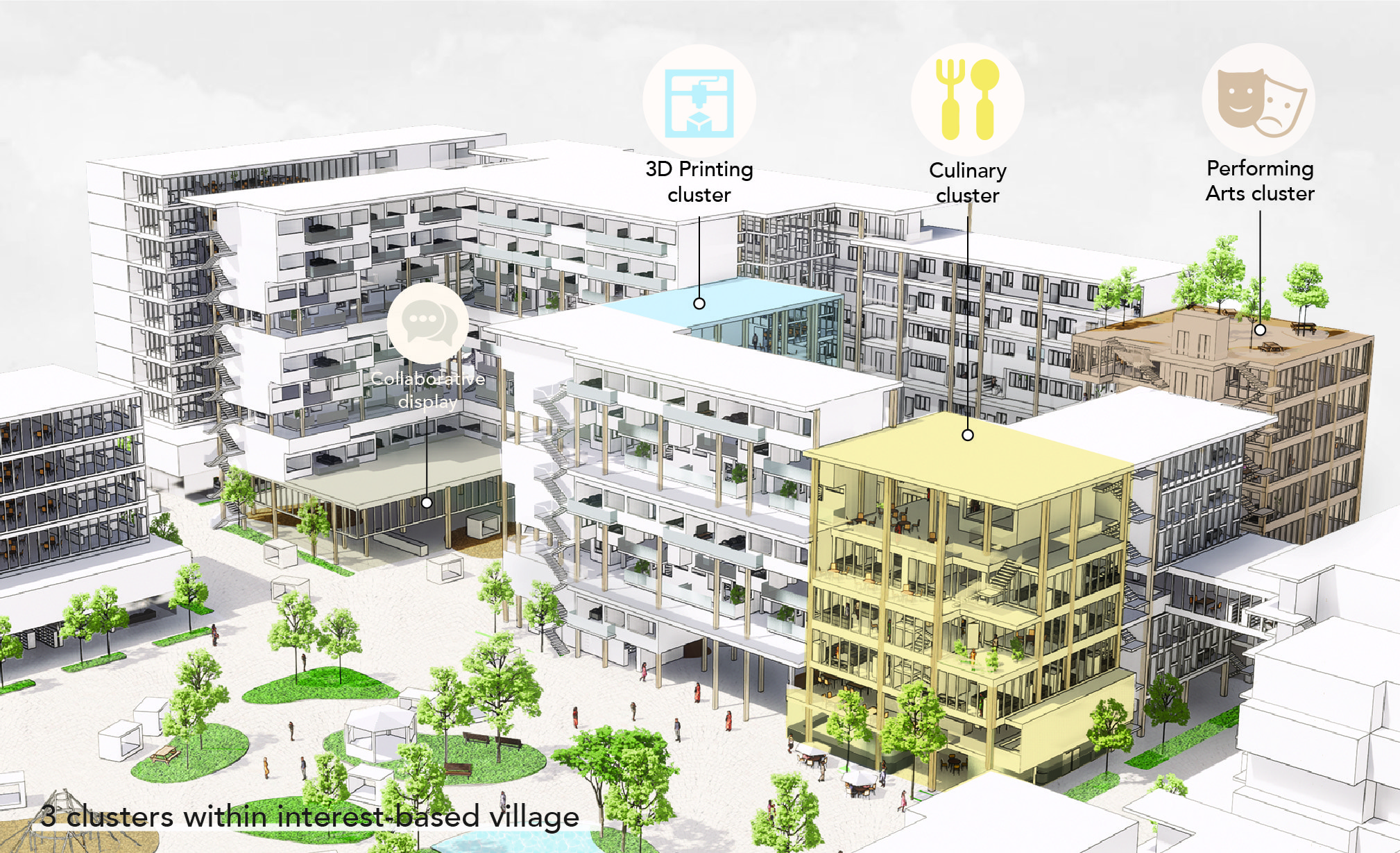
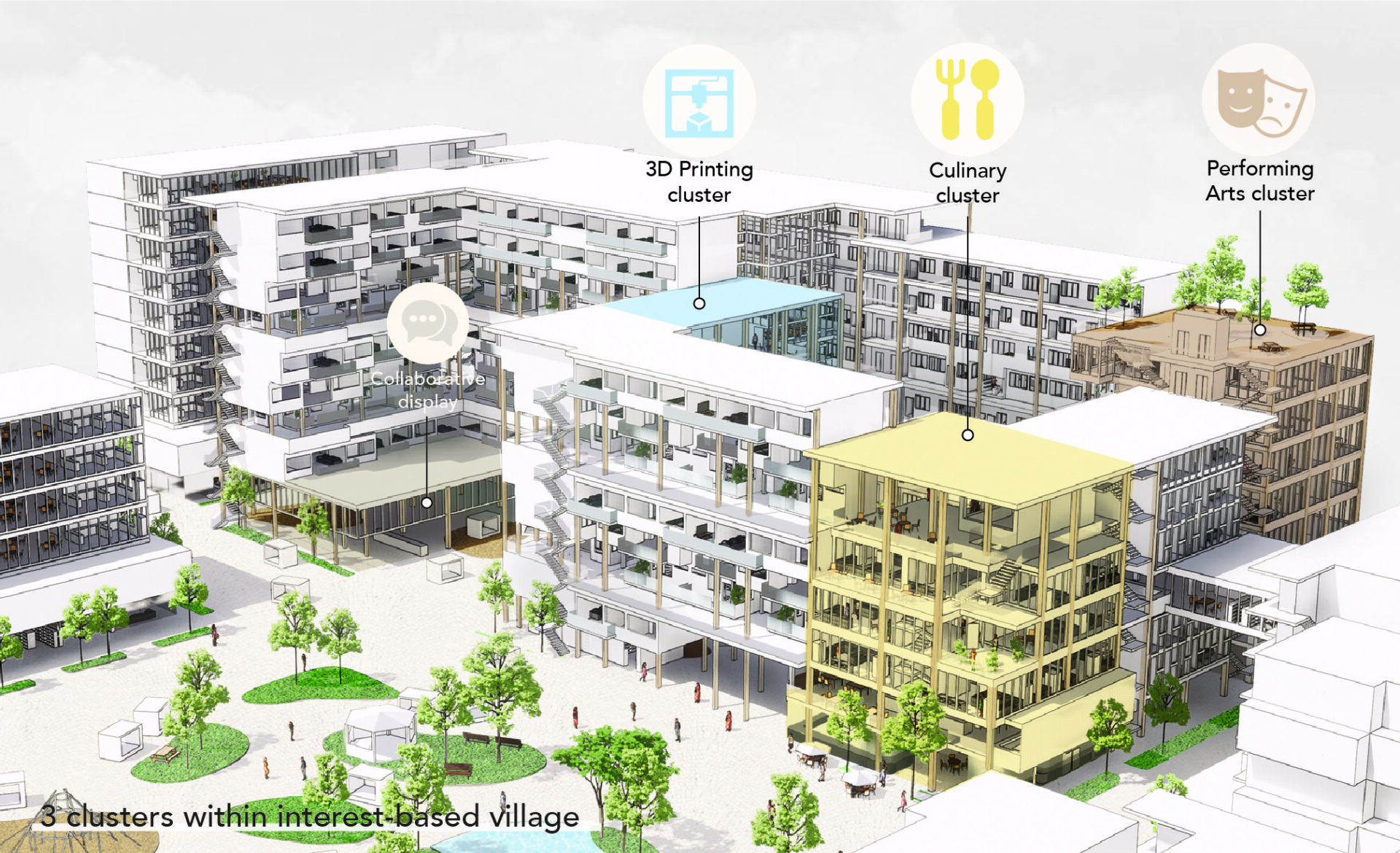
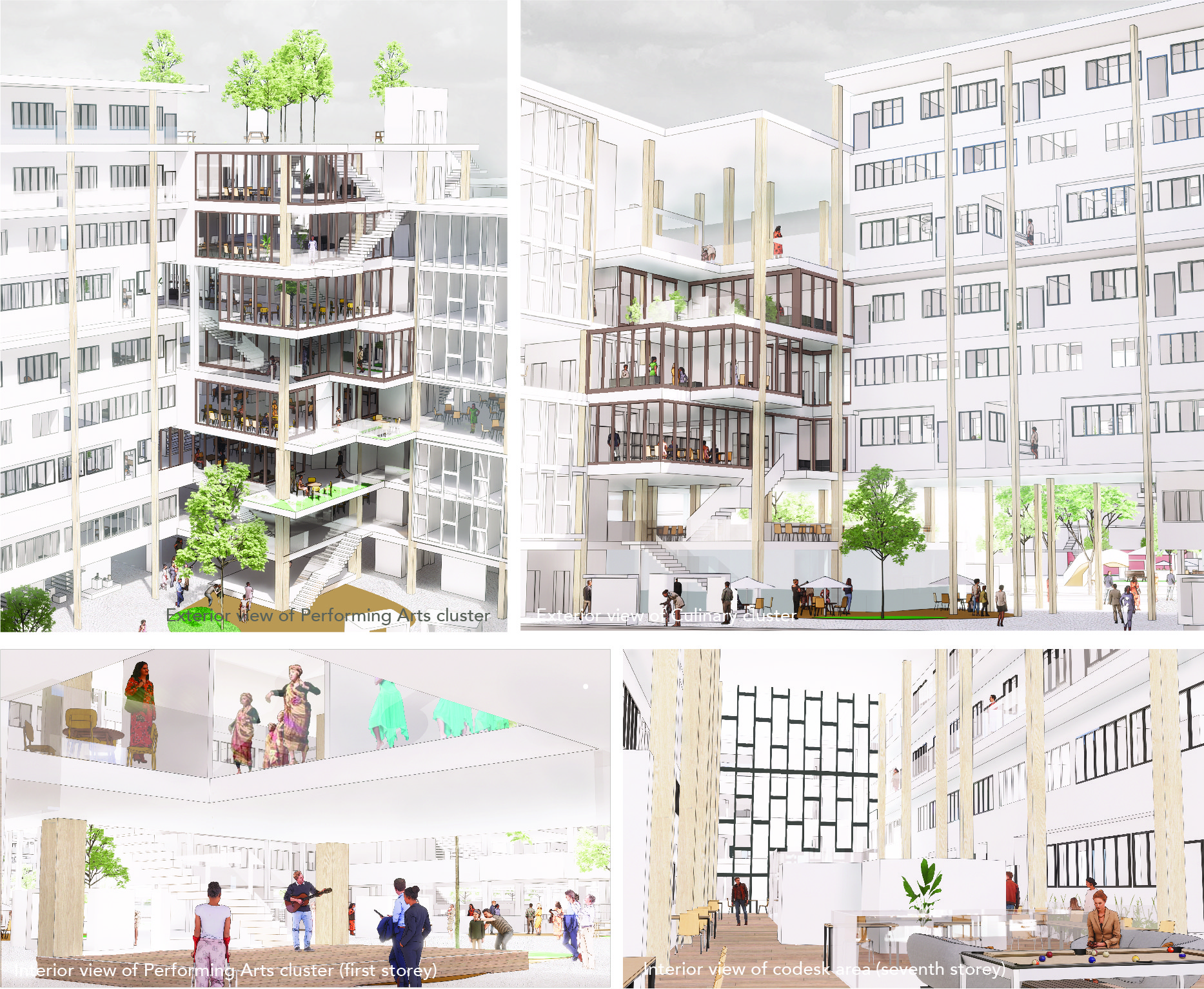
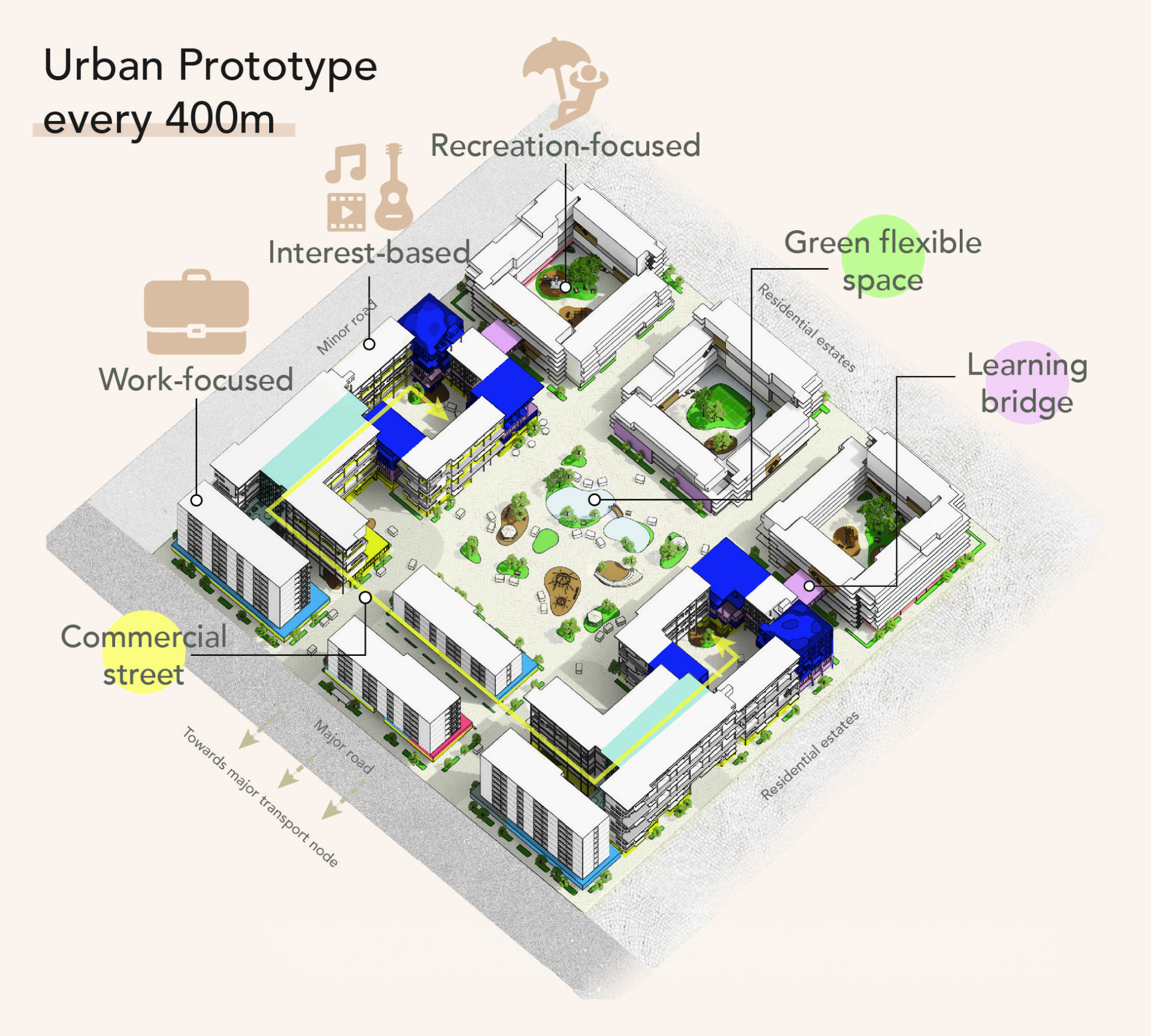
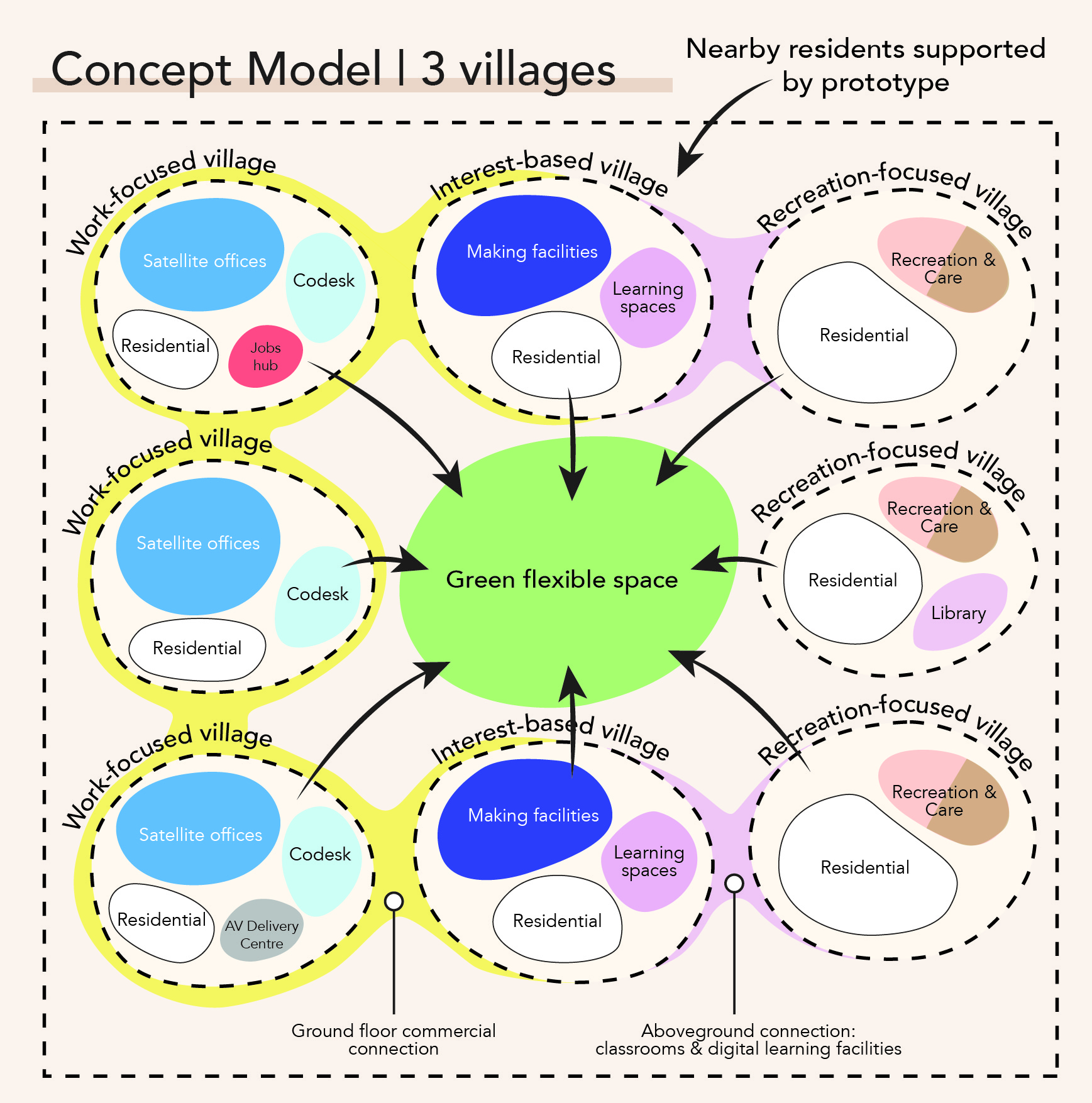


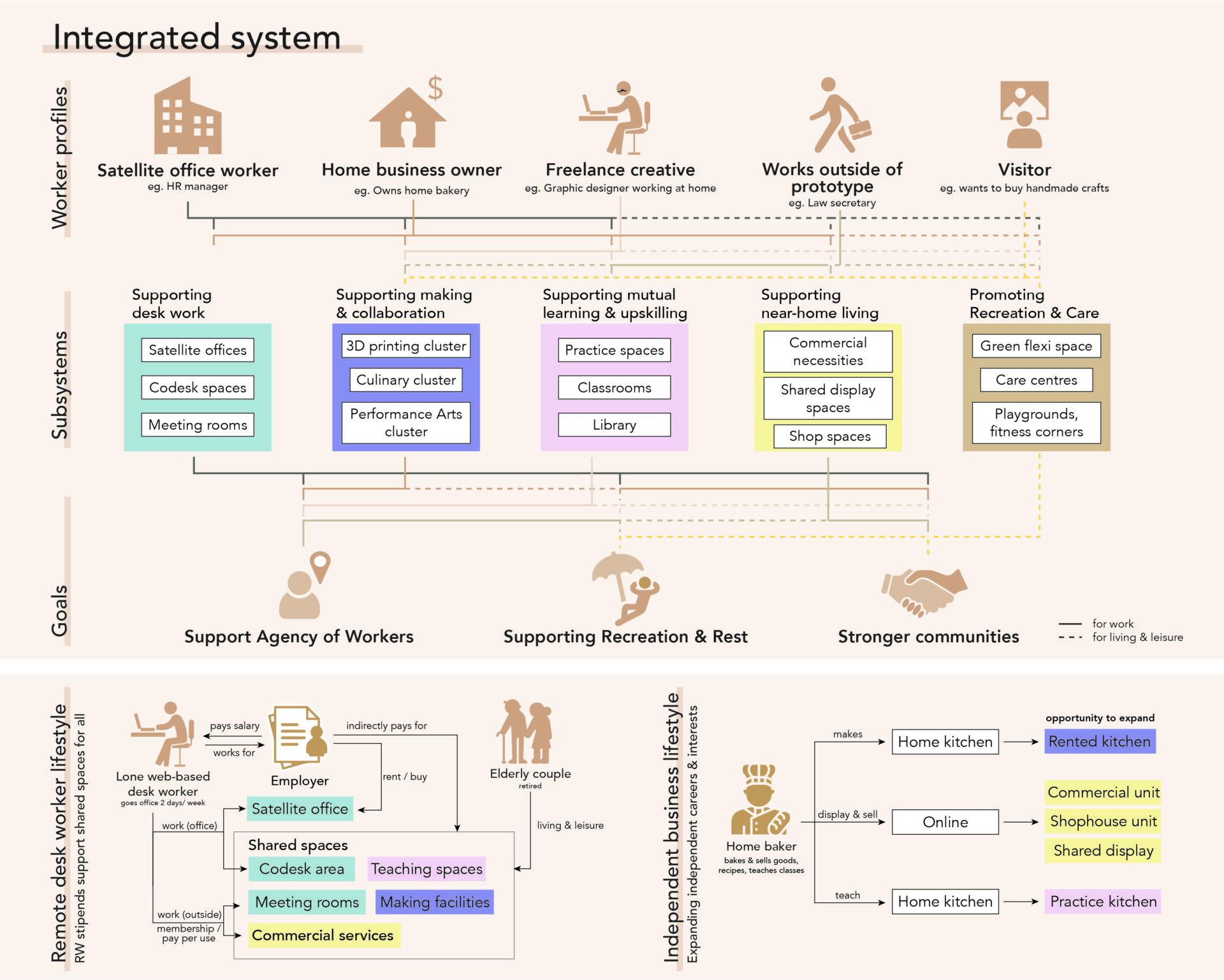
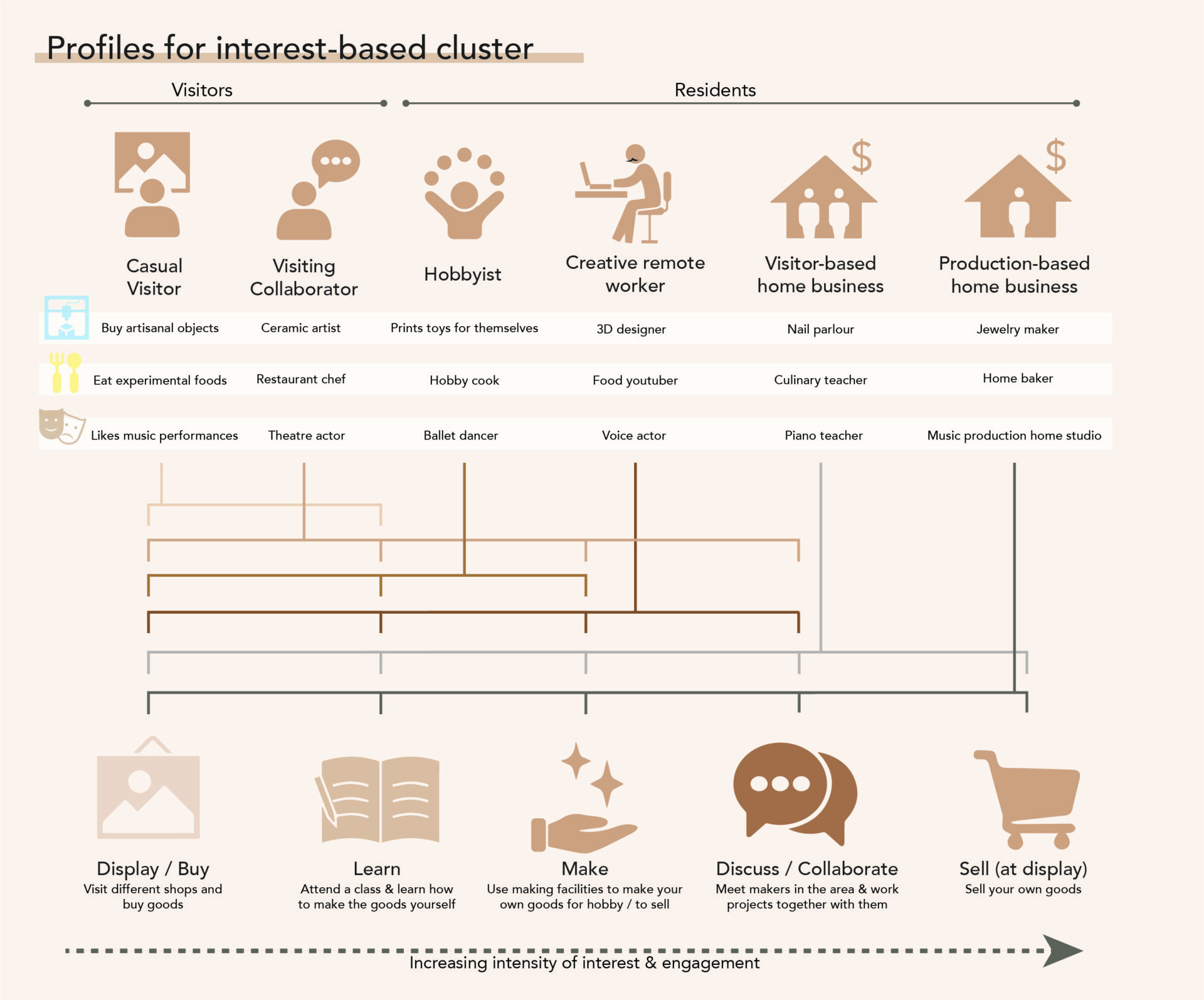
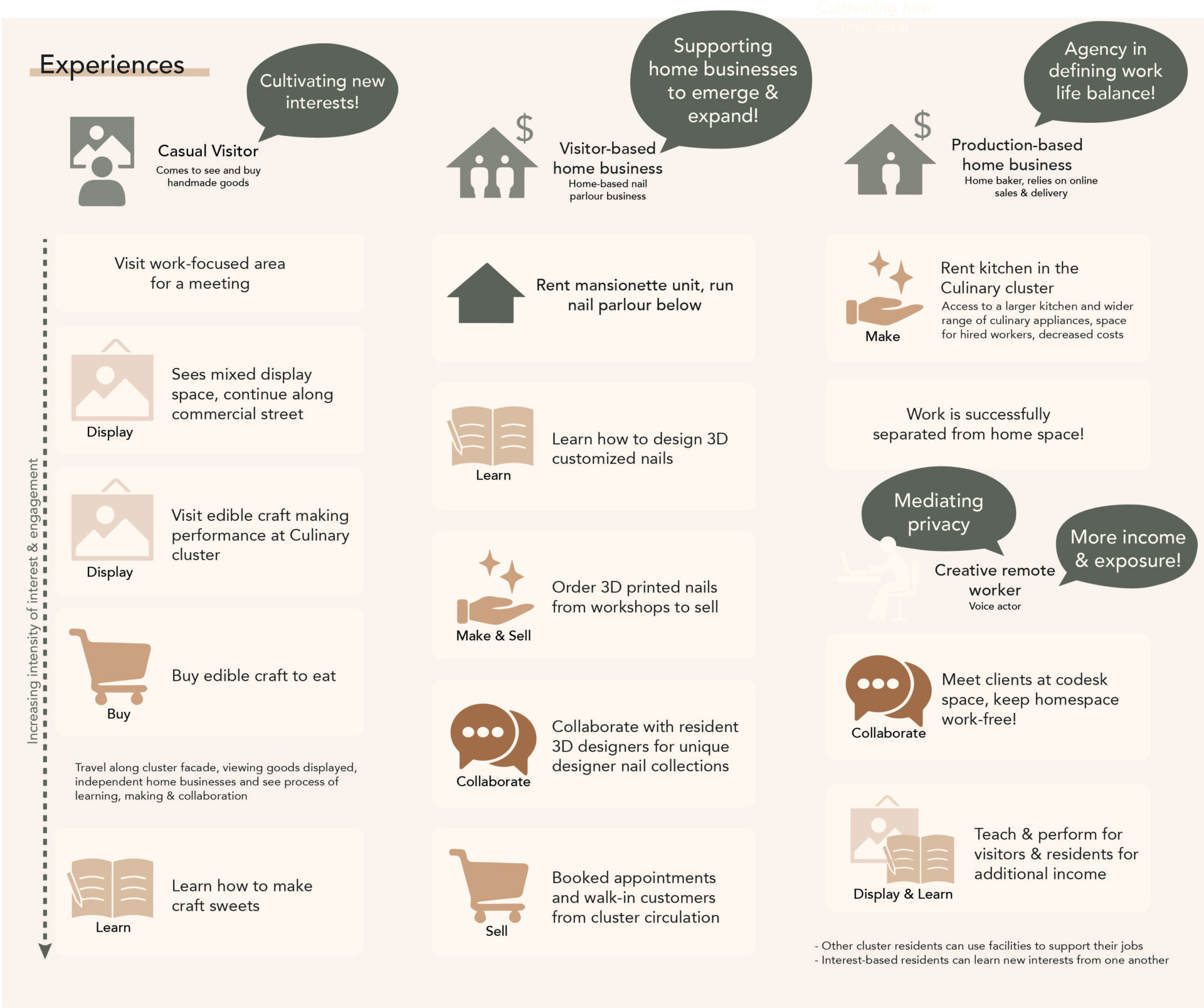
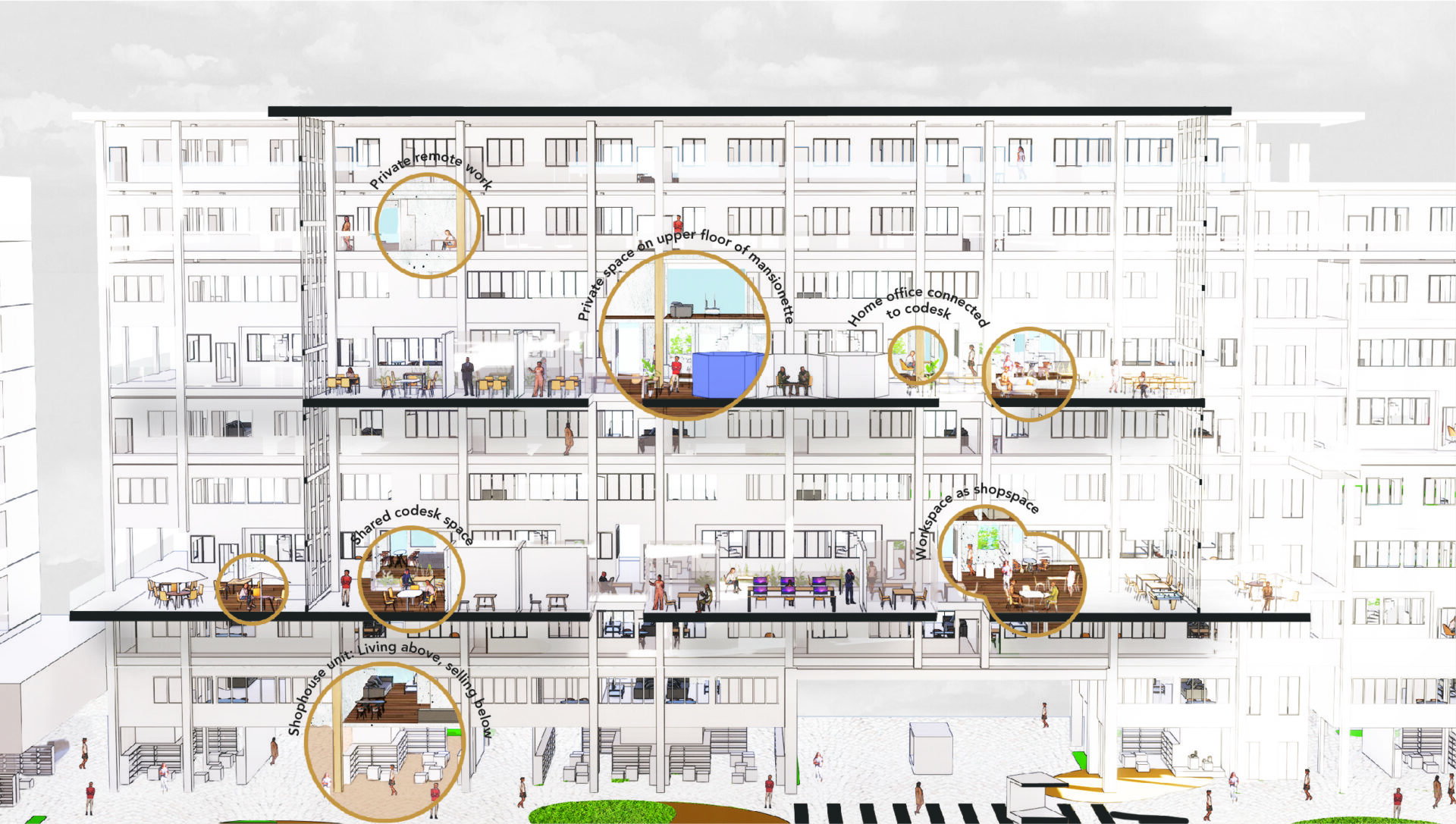

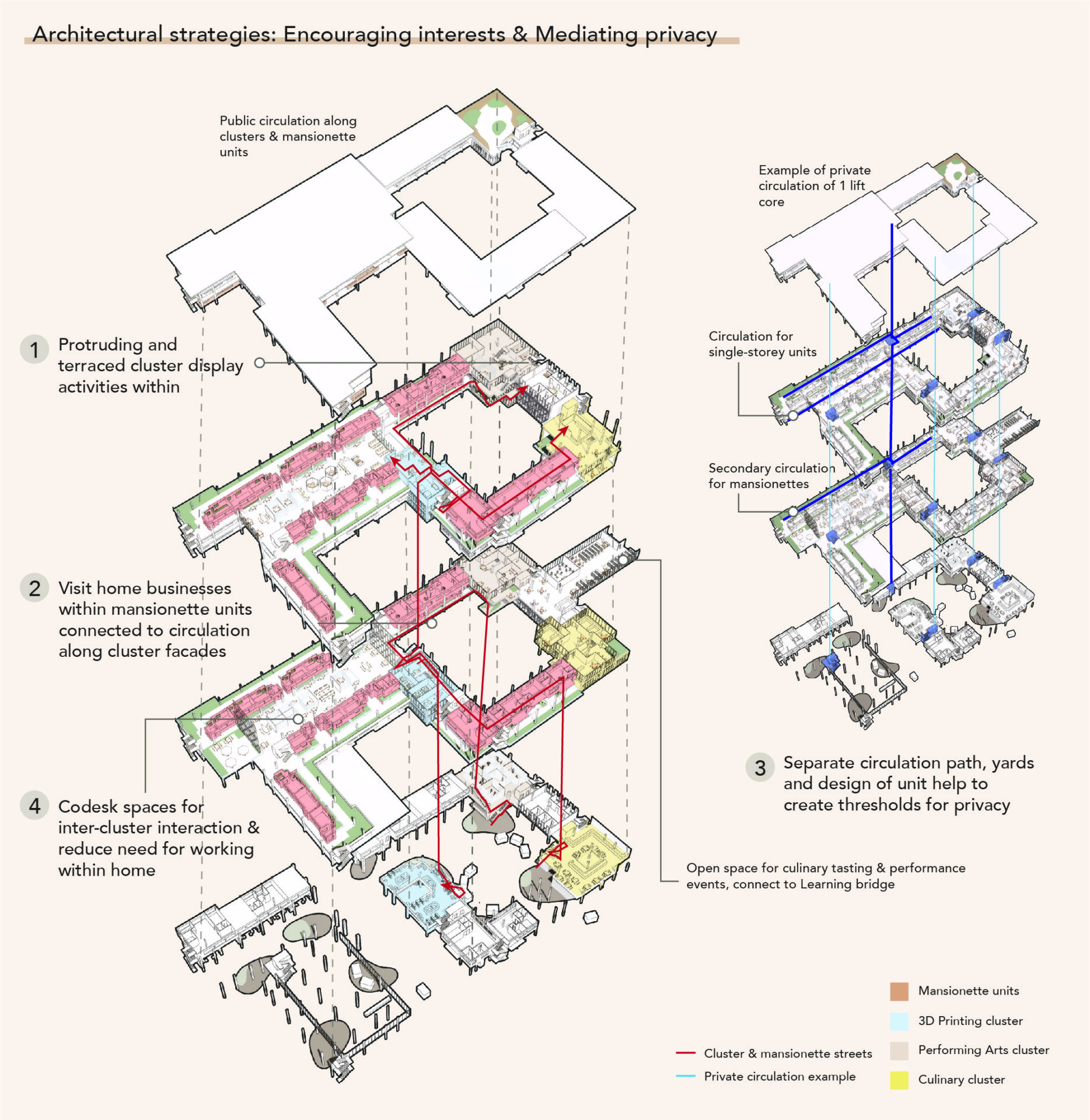
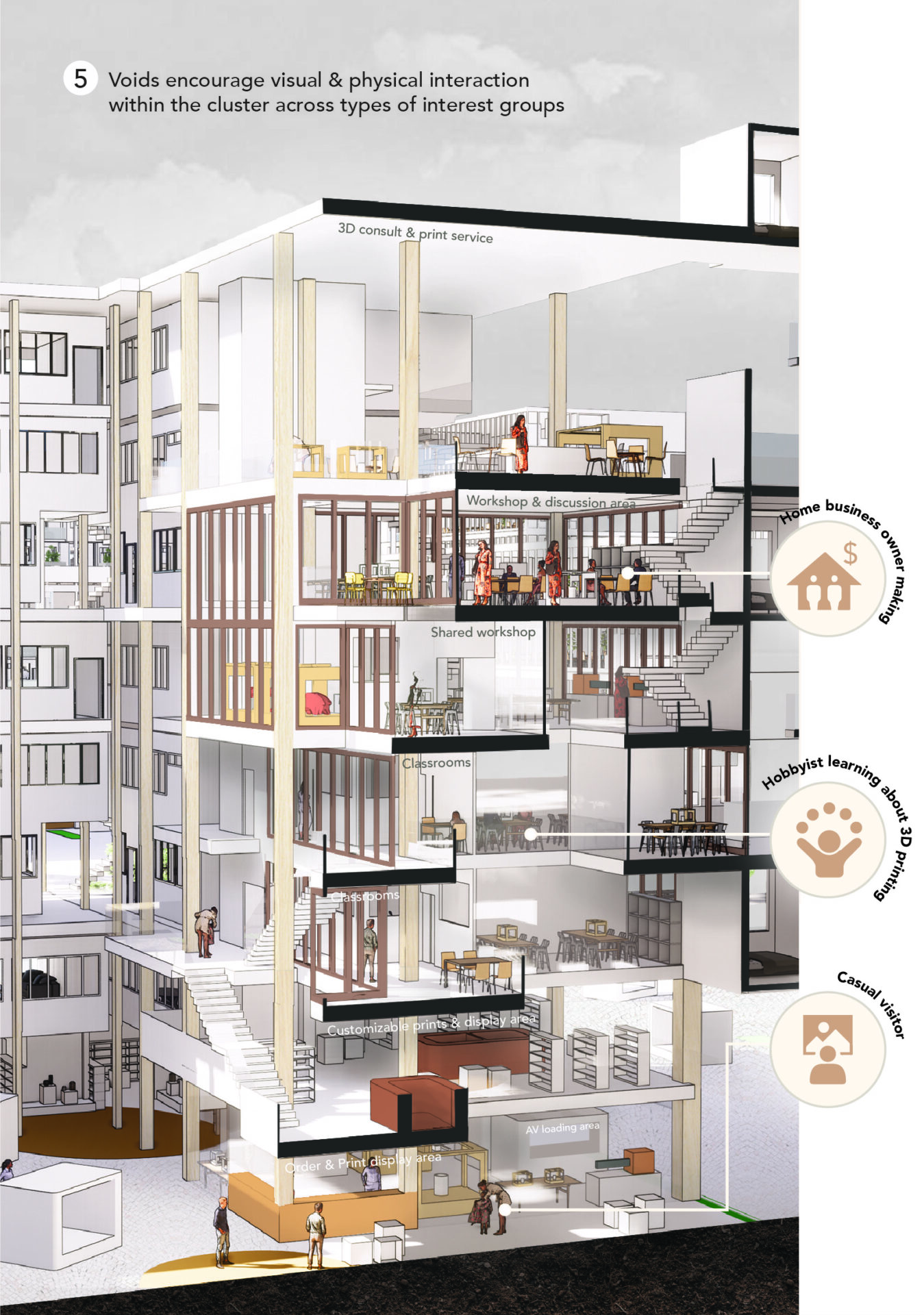
Supervisor's comments:
The covid-19 pandemic has accelerated the extent of working from home which brought on other problems. Feranda’s thesis contribution is addressing remote work and agency at a few scales: neighbourhood scale, building scale and housing unit scale. It is a mixed-use prototype that can be inserted into existing housing estates or applied on tabula rasa new estate. It reimagines a future neighbourhood that supports work from or work near home and promotes community and interdisciplinary collaboration. The design is inventive in providing for interest-based clusters within a medium-rise human scale environment.
- Assoc. Prof. Tan Beng Kiang (Dr.)